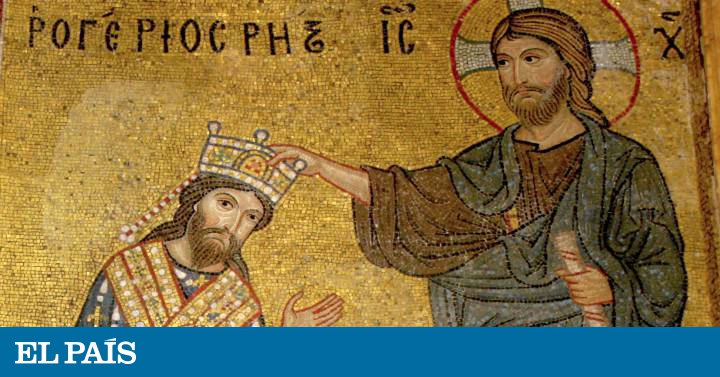In 1046 a young Norman arrived in the Italian peninsula who, in the words of the English historian John Julius Norwich (1929-2018), conquered the glory, founded his own dynasty and, in the following decades, “would shake the foundations of Christendom , he would dictate the fate of one of the most influential popes in history [Gregory VII] and cause the imperial thrones of both East and West to tremble at his name. ” It was Roberto de Hauteville, better known as Guiscardo (cunning), who was born around 1015 in Coutances, France, and died four decades after his arrival in southern Italy, in 1089, with the titles of Duke of Apulia, Calabria and Sicily
The exciting story of his military campaigns against Byzantines, Lombards, Germans, Arabs and even other Normans, his diplomatic negotiations with emperors and popes (he went to the rescue of Gregory VII despite the fact that he had excommunicated him several times), and his intelligence ( hence its nickname) to get out of how many conflicts crossed their path, they make up the bulk of the Norman story in Sicily. The invasion of southern Italy, 1016-1130, which has reissued this January Penthouse of Books. In this essay, Norwich rescues and values a historical period in which the Normans consolidated their presence in Southern Europe and eventually founded the kingdom of Sicily, which for the historian constitutes "a miracle" of coexistence of cultures that had its reflection in the economy, art and architecture. Norwich speaks of that Norman splendor on the largest island in the Mediterranean in a second volume, entitled A kingdom in the sun. Sicily, 1130-1194, which the same publisher will launch next April.
“Everyone knows the history of the Normans as Vikings who settle in northern France, or their involvement in the crusades, and also the invasion of England, if only for the movies, but the lack of knowledge about their presence is surprising in Sicily ”, highlights the editor of Attic of the Books, Joan Eloi Roca, on the importance of both essays originally published in English in 1967 and 1970 and on that of its author, a great disseminator of whom the literary seal has been proposed edit all his work, including his famous trilogy about Byzantium.
"What begins as a military epic, with military and diplomatic deeds, ends with a cultural and economic miracle," says Roca. A miracle that made alliances and disputes with Byzantines, Lombards and Saracens, the kingdom of Sicily in the third largest state in Europe in the twelfth century, even ahead of England. An epic that would remain forgotten, except perhaps for a small number of historians, if it were not for Norwich's passion.
The Normans in Sicily starts on the Italian peninsula with a strange episode narrated in different ways by different ancient historians. Norman pilgrims returning from the Holy Land in 1015 visit an old sanctuary in Apulia (on the Italian east coast, in the Adriatic), that of Monte Sant'Angelo. There they are contacted by a noble Lombard from Bari, called Meles, who had already led a rebellion against the Byzantine Empire of the East, which maintained a difficult balance of power on the peninsula against the Holy Empire of the West. Meles asked them to help them in their fight against the Greeks to consolidate an independent state. The fact is that as of 1017 began to arrive to the region multitude of Normans from France in search of fortune in a rich and fertile land.
The Norman presence, first as mercenaries who were placed under the orders of those who better pay them, thanks to their excellent aptitudes for war, consolidated in the following decades, but the true turning point occurred after 1046, with the arrival by Roberto de Hauteville, which Norwich qualifies as "the most amazing military adventurer between Julius Caesar and Naples." The Guiscardo, after consolidating in southern Italy, conquered the Mediterranean island in 1071, then dominated by the Saracens, with the help of his younger brother Roger, count of Sicily. But Roberto de Hauteville continued his war against everyone and never returned. He died in 1089, at age 70, on the island of Kefalonia precisely in a campaign of conquest against the emperor of Byzantium.
This first volume concludes with the coronation of Roger's son as the first king of Sicily, who ascended the throne as Roger II of Sicily in homage to his father, although he never became king. And it will be in A kingdom in the sun. Sicily, 1130-1194 where Norwich counts the years of prosperity in a territory where Norman French, Greek and Arabic were declared official languages. A splendor of which there are still many remains, and the English writer gives as an example the Palermo Palatine Chapel, "a natural fusion of the brightest of the Latin, Byzantine and Islamic traditions in a unique and harmonious masterpiece", a basilica of Latin floor with Greek gold mosaics and a roof of Islamic-style wooden morarabes. And that was raised precisely in the century of the crusades.
“Sicily has been disputed and subjugated by all the great peoples that (...) have struggled to extend their influence across the Mediterranean. It has all belonged to everyone, but none has become its true owner, ”writes the historian and diplomat born as John Julius Cooper - he changed his last name after becoming the second Viscount of Norwich - in his essay, where he praises the Norman legacy in front of other waves of invaders - Phoenicians, Greeks, Carthaginians, Romans, Goths, Byzantines, Arabs, Germans, Spaniards and French - who left their mark on the island. Great crush on that land in the heart of the Mediterranean, Norwich always considered that in Sicily lies "the regret that remains after a long experience of misfortunes, lost opportunities and failed promises." I may long for the splendor that he lived in the time of the Normans.
SEARCH ONLINE 'LOS NORMANDOS EN SICILIA'
Author: John Julius Norwich.
Translation: Maureen McMillan and Juana Gallego.
Editorial: Attic of the Books, 2020.
Format: hardcover (399 pages).
Find this title in your nearest bookstore








